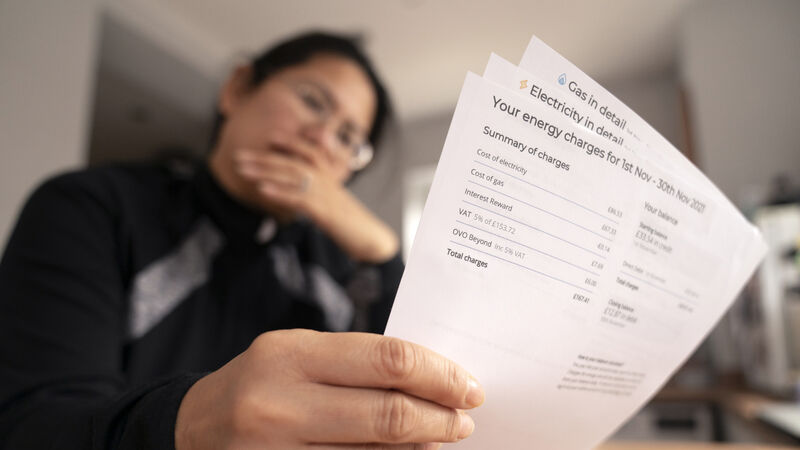Doubling of €100 credit for electricity bills on cards to help with rising costs

While there is an acceptance among Government ministers that increasing the €100 energy credit to all households is a blunt instrument, the mechanism is in place for a speedy rollout. File image.
A package of measures to ease the cost-of-living crisis could include a doubling of the €100 electricity credit for households, waiving of hospital fees, and subsidising of public transport.
The Government is to examine “any and all” costs levelled by the State on the public, as it seeks to reduce the impact of rocketing petrol and diesel costs and the rising price of electricity, home heating oil, food, and rent.













